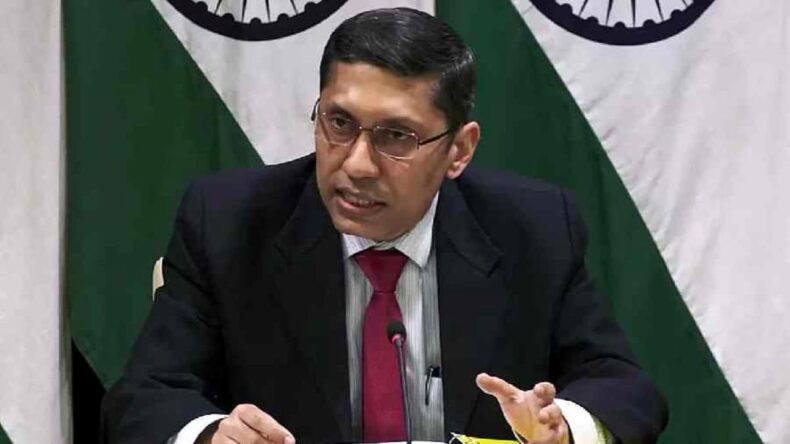Table of Contents
India has rebuked the OIC for its alleged “communal mindset” and “anti-India” agenda. This condemnation follows the OIC’s statement expressing concern over the targeting of the Muslim community during Ram Navami processions in several states in India

India slams OIC for an alleged “communal mindset” and “anti-India” agenda
India has strongly criticised the Organisation of Islamic Cooperation (OIC) for having a “communal mindset” and an “anti-India” agenda. The condemnation came after the OIC issued a statement expressing concern over the targeting of the Muslim community in various states of India during Ram Navami processions. Arindam Bagchi, the spokesperson for India’s Ministry of External Affairs, denounced the OIC’s statement and accused it of being manipulated by anti-India forces. Bagchi stated that the OIC’s repeated involvement in India’s internal affairs only damages its reputation.
Clashes during Ram Navami processions
Last week’s Hindu festival of Ram Navami saw violent clashes in several states, with groups throwing stones at each other and vehicles being set on fire. The clashes resulted in at least 36 arrests in the eastern city of Howrah and 22 arrests in Vadodara.

In Bihar Sharif, also, 77 people were arrested in connection with the violence, with one person dying in fresh violence. Prohibitory orders have been imposed, and internet services have been suspended in the affected areas. Sufficient paramilitary personnel have been deployed to manage the situation. A flag march was also conducted to maintain peace and harmony in the area.
The Organisation of Islamic Cooperation (OIC) issued a statement condemning the violence and vandalism as indicative of a “mounting Islamophobia and systemic targeting of the Muslim community in India.”
India and OIC’s tense relationship over various issues
The Organization of Islamic Cooperation (OIC) and New Delhi have had a tense relationship due to various issues. One of the main sources of tension is the dispute over Pakistan-occupied Kashmir. The OIC has been critical of India’s handling of the situation in Kashmir and has supported illegal Pakistan’s position on the matter.

Indian government has rejected the OIC’s involvement in the Kashmir issue, viewing it as interference in its internal affairs. It has also criticised the OIC for supporting Pakistan-based terrorist groups, which it sees as a threat to its national security.
Furthermore, India has expressed concern about the OIC’s approach to issues related to Islam and Muslim communities in India. The OIC has issued statements on issues such as the Babri Masjid demolition and the Gujarat riots, which India sees as interference in its domestic affairs.
India has also been critical of the OIC’s stance on terrorism, arguing that it needs to take a stronger position against countries that support and sponsor terrorism. India has accused Pakistan, an OIC member state, of supporting terrorism against India, and has called on the OIC to address this issue.
Overview of the history and role of the OIC
The Organization of Islamic Cooperation (OIC) was established in 1969 and comprises 57 member states with a combined population of over 1.8 billion Muslims. The OIC aims to promote and protect the rights and interests of the Muslim world, and address political, economic, and social issues facing member states. It is headquartered in Jeddah, Saudi Arabia, and works through various specialised institutions and committees.
Today, the OIC remains an important organization in the Muslim world, and it continues to play a significant role in addressing the challenges facing its member states and promoting the interests of the Muslim world as a whole.

OIC’s silence on Uyghur Muslim abuses in China
However, the OIC has been criticised for its silence on the issue of human rights abuses against Uyghur Muslims in China’s Xinjiang province. Despite representing 57 Muslim-majority countries, the OIC has not taken a strong stance on the issue, leading to criticism from human rights groups and activists. Some have suggested that the OIC’s reluctance to speak out on the matter may be due to China’s significant economic and political influence over some member states.













